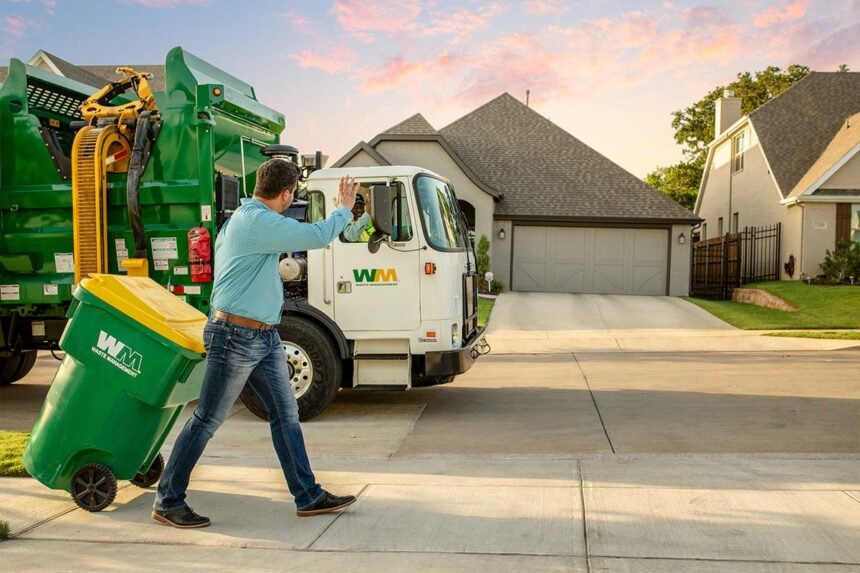They reduce the amount of waste buried in garbage sites hence, the natural decomposition assists the environment and reduces methane emission which is a dangerous gist house gas. In this process, the minerals are returned into the soil increasing its fertility and structure as well as enhancing the growth of better plants.
Decomposition also lessens the requirement for artificial chemical fertilizers and the damaging discharge they produce into aquatic areas. Decomposition lessens the harmful environmental effects of waste disposal and helps to preserve the area around landfills by taking away organic waste from graves. Since Skips For Rent is an affordable means of gathering and moving biological waste to recycling centres, they makes an excellent composting alternative.
Minimizes Food Waste
The best approach to cut down on food waste is to compost. Since every American throws a lot of food in the trash, at-home decomposition can be very helpful, even on a tiny scale. The Natural Resources Defence Council has estimated that between 30 and 40 per cent of food produced in the US does not make it to the consumer’s table.
The World noted that more than 133 million pounds of food that can be eaten is thrown away every year in the United States. This not only wastes all of the precious assets needed to produce nourishment, but it also costs the American taxpayers over $161 billion in lost revenue.
This preserves ecological systems and sceneries by prolonging the life of current cemeteries and reducing the demand for new trash dumps.
Advantages of Composting Soil
By enhancing soil structure and making sandy soil more water-retentive and dense clay soil lighter, decomposition improves soil health. Additionally, the organic material from the compost lowers the erosion of soil and improves the soil’s ability to retain water. This enhanced structure of the soil is beneficial for the stimulation of healthy life in the soil environment because it can attract more healthy life forms to the soil like worms.
Decrease in Landfill Waste
The decrease in waste dumped in landfills is one of the most obvious advantages of composting organic waste. A sizable amount of waste is natural, which includes food particles, yard clippings, and other decomposing stuff. The amount of waste that ends up in cemeteries is significantly reduced when these items are sent to composting facilities instead of cemeteries. This preserves ecological systems and sceneries by prolonging the life of current cemeteries and reducing the demand for new trash dumps.
Reduces the Release of Greenhouse Gases
If you’re still not convinced that food being wasted is an issue, consider this sobering statistic: if discarded food were a nation, it would rank third worldwide in terms of emissions, right after the US and China. Our food scraps not only emit 3.3 billion tons of CO2-equivalent greenhouse gases into the atmosphere, but they also produce gases such as methane in the aerobic state of garbage dumps. Methane has 86 times the power of carbon dioxide. Because of its strong impact, the gas is responsible for around 25% of the phenomena of climate change.
Reduction of the Use of Chemical Fertilizers
Horticultural and farm production with the aid of inorganic fertilizers has always been known to cause certain environmental issues such as eroded soil and polluted water. These fertilizers often pollute the waters from reservoirs Eutrophication which is the excessive growth of algae that depletes breathable air in the water affects aquatic life. Compost ensures that plants receive a steady stream of vitamins and minerals as opposed to the fertilizers in the market.
Promoting Biodiversity
Maintaining gene pool Biodiversity in soils, using organic matter and microbial fertility supports a wide array of small animals such as fungi and microbes, worms and many others. Such beings make it possible to maintain the soil and also its fertility in a good state. By giving these soil-dwelling species a home and an energy source, composting adds to diversification. Better plants and ecological systems that can endure ecological obstacles result from increased biodiversity in the soil.
Final Words
The ecological benefits of organic waste composting are diverse and extensive. Composting is an integrated method of waste disposal that removes litter from cemeteries; moreover, it improves the quality of the earth and the level of species’ variety as well as influences the emission of greenhouse gases.
Through composting, there will be organizational support for organic farming, earth, and hardy society. Decomposition is a very important technique that has to be used in global transformations to obtain a more sustainable future because it practices small actions for resolving existing difficulties in waste management and patiently attains the goals of ecology.
These fertilizers often pollute the waters from reservoirs Eutrophication which is the excessive growth of algae that depletes breathable air in the water affects aquatic life. Compost ensures that plants receive a steady stream of vitamins and minerals as opposed to the fertilizers in the market.





